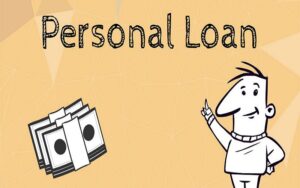How to get a loan from a bank?

BAlthough some central banks are starting to tighten their monetary policies, the European Central Bank (ECB) still applies zero or even negative interest rates.
Credit offers are therefore currently diverse and varied with interest rates and conditions that differ from one bank to another. If you have a project to finance, the current environment remains favorable for loans with rates offered almost at the lowest.
It is important to be well informed and to prepare your file well before applying for a loan. How to negotiate it well? What should I avoid? What to think about
1 # A bank is above all a business
We must not forget that a bank is above all a business like any other, and like any business, it will seek to optimize its profitability while minimizing its risk.
This is why a bank will be careful and demand many documents and many guarantees when there is a request for credit because it will analyze the risks that a file presents in relation to its future profitability. It’s up to you to convince her of the viability and profitability of your project.
2 # your project must be viable
If your plan is to create or take over a business, banks will turn more to projects in areas where they have knowledge. In all cases, you will have to present your project in detail in a business plan to explain to the bank what you plan to do, how and to obtain what results.
To know if a project is viable, the bank will obviously seek to know if it is profitable or not and it will use the quantified forecasts that you will provide to it in particular the balance sheet and the income statement over 3 years or 5 years in general.
Whether the project is profitable or not, the bank must ensure that you can have enough to pay the loan maturities but also so that you can have leeway for the development of your business and a margin of safety.
It will thus be necessary to determine your need in working capital or working capital which represents the difference between your stable resources and your stable jobs.
Each hypothesis that you are going to present in your business plan must be as realistic as possible and you can help yourself for this with quotes that you have already made, order commitments, user cost estimates, etc.
3 # Your education, your professional experience and your personal life affect your credit application file
If it is a question of starting your business, it is important for your bank that your studies and / or your professional experience match the project you have because, depending on the nature of your project, the bank considers that ‘a certain training, a certain level of specific training and / or a certain professional experience is required.
If you want to obtain a mortgage, know that banks are cautious and fear professional instability. It is preferable to have an indefinite contract.
Seniority in a company is also appreciated. If you are in a liberal profession or a craftsman, it would be good to arrive at the bank with the financial statements of your last 3 years minimum.
4 # Your personal contribution to obtain a loan must be sufficient
It is advisable to balance your own funds with the funds you wish to borrow. The total lack of starting funds is generally prohibitive. Although there is no obligation and it differs from bank to bank, the minimum down payment is usually 10% of the amount borrowed – some banks charge between 20% and 30%. When it concerns a mortgage, the bank considers that the contribution must cover at least the costs of notary, file, real estate agency, guarantee etc.
The bank will assess your personal assets and what will be left to you once you have paid the contribution. If, as a result of the credit and the contribution you have made, you have too little means, the bank will not be satisfied because it will see too much of a risk.
5 # Monitor your debt capacity, your savings capacity and your credit history
When a credit request is made, the bank studies your financial situation. It is therefore necessary to avoid being overdrawn for some time before applying for credit or having bad records on previous credits.
You should also monitor your debt capacity. It is generally said that the amount of the loan should not exceed one-third of your net income.
The bank will also be sensitive to your savings capacity, that is to say the part of your income that you decide to set aside before, but also after, the loan. Paying off the loan should not “exhaust” your ability to save money.
Conclusion
You will understand that preparation plays an essential role in your loan application. To obtain the best loan, it is dispensable to shop around to get an idea of the best rate available on the market. It is also necessary to compare the different methods: nominal interest rate, overall effective rate (TEG), early repayment conditions, repayment period, etc.







